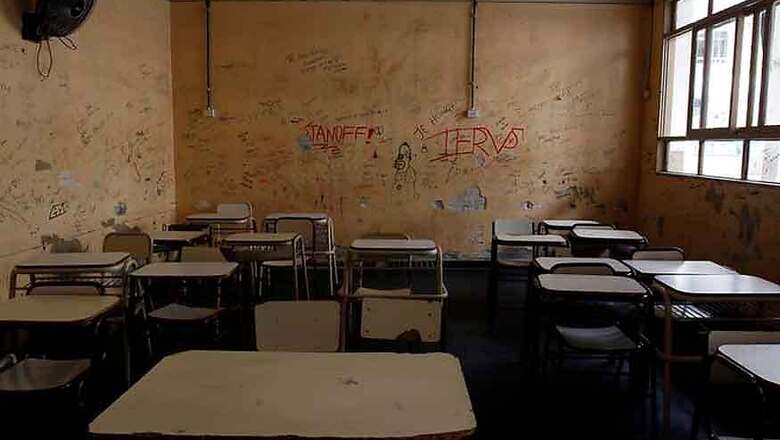
views
A recent survey conducted by NGO Pratham on the learning skills of Class 8 students in the rural countryside has revealed that Class 8 students in 596 rural districts were unable to perform basic maths functions.
Results of the survey, which was put out in the NGO’s Annual Status of Education Report (ASER), also found that around 27% of the students could not read.
The report comes a year after the 2017 National Achievement Survey that found a progressive decline in the learning levels of mathematics among 2.2 million government school students across 700 districts.
This is disturbing considering that mathematics is deeply ingrained in the history of the Indian subcontinent. Apart from gifting the concept of ‘zero’ to the world, the ancient Indian mathematicians made pioneering contributions to every field of its study.
Yet, as the survey results indicate, millions of kids still struggle to relate to the subject in this country and, sadly, grow up to abhor and detest it.
Many factors determine the success of teaching mathematics.
To make teaching math in India dynamic and responsive, an in-depth study is required to spot the lacunae in the current system, and to explore innovative math teaching processes.
In vast tracts of the rural countryside, imparting education through primary and medium schools is also a governance issue. Acute shortage of teachers, poor infrastructure and lack of ambient environment at home and schools alike, have an adverse impact on the children’s performance. Absentee teachers and outsourcing of teaching jobs are other maladies that plague this set up.
As a result, in the current education system, more stress is laid on the procedure than on the concept. Conceptual understanding is the fundamental building block of learning mathematics and solving problems.
Learning computation or solving template based problems dispassionately will not help in gaining a foothold in higher math. While the math teachers in India have the required understanding of mathematics, they often lack in their knowledge of pedagogy. One way to address this is to mandate new modes of professional development programmes.
Teachers should also be equipped with new-age teaching skills to nurture deep conceptual understanding and to help children persevere when the problem-solving process gets tough.
Mathematics need not be a boring, dry and tedious exercise after all. It is the onus of the teacher to make math real, to make problem-solving fun and enjoyable, with the help of teaching resources.
Technology should be integrated into math learning for multiple representations of concepts.
Math is not only for the gifted. It is for all, provided we find the right key to its learning. In the drab school rooms, the children cannot relate with the abstract notion of sums.
They are too bewildered by the set of rules and calculations which they fail to visualize. Instead of sitting in packed classrooms and assuming concepts, the children can be made to handle actual objects and learn real life applications. The active usage of multiple senses tends to make the learning permanent.
Knowledge of math nurtures the power of reasoning, problem-solving ability and communication skills. It makes one methodical, interactive and participative. Strong math skill helps one be a torch-bearer, a prime mover, a game changer. Without knowledge of Mathematics we cannot plan a rational society, as fairness, integrity and inclusiveness in a democracy hinge on the skills and understanding of the citizens.
Mathematics is also a window to an amazingly beautiful cosmos. There is mathematics everywhere - in the petals of the daisies, spirals of a pine cone, in snowflakes and musical notes. Our Universe is a “grand book” written in the language of mathematics, as Galileo had famously stated.
To project the nation as the upcoming economic power, India needs to meet the global standards in collective intelligence for which knowledge building in math is essential. Unless immediate measures are adopted to improve the prevalent teaching methods of math, the country will cut a sorry figure in today’s knowledge-based economy. Dearth of collective knowledge in mathematics may turn out to be a formidable barrier in the way of the country's progress in the days to come.
(Author is an ex-IPS officer. Views are personal)

















Comments
0 comment